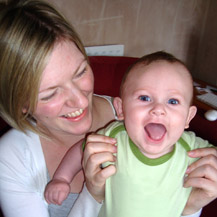Getting your Children to Sleep in their Own Beds
We have all been there, you take your bundle of joy to bed at 8pm only to find them in your bed at midnight. This is one of the issues that is certainly not as widely reported as other tough parenting times, but that doesn’t make it any easier to deal with when it happens. Although this isn’t the worst habit that your children may go through as they grow up, it does have an effect on their sleep patterns, which can affect growth and development. This is the exact reason it has to be dealt with as quickly as possible.
Here are some top tips to help you try to break the habit and help your children get a better night’s sleep.
Create a plan
Having a plan is one of the most important parts to dealing with any change in pattern for your children. This is not just for your use, but also for theirs as they will be able to physically see what changes are happening.
Any plan you make needs to have an element of research to it as there may be a physical or functional issue as to why your child won’t sleep in their own bed. Start off by looking at their bed, mattress and pillows etc. It may be a simple case of not being comfortable enough or supporting your child properly. One of the best things to do is to view the Childrens bed range at a variety of stores. This will give you an idea of what else is available and whether or not a new bed would be beneficial. A more attractive or comfortable bed may be the simple solution to this problem.
You then need to consider timing. What is the current time your child goes to bed? It could be that they are simply going too early or too late. As adults we have all gone to bed too early, just because we feel like we have to. This has led to sleepless nights and it is no different for your children.
Once you have devised your plan, write it out and pin it up within your home. It could teach your child a bedtime routine. From the time they get into their pajamas, brush their teeth, and ultimately go to bed. Once everyone can see the schedule, it will be easier to stick to it. However, if your kid is still causing havoc on not sleeping alone, you may consider discussing this with a local doctor or child therapist, which you can look for online such as Kinspire. A therapist might help to find the root of the problem and provide information on how to resolve the issue.
Always Use Positive Language
One of the most detrimental things a parent can do to a child that won’t sleep in their own bed, is to be negative about the situation. Whether this is through negative words or body language, it won’t help the situation however frustrated you are. One of the best practices to put into place is positive reinforcement or in essence, letting your child know that they are not in trouble and making sure that they are happy and positive when they go to bed. Some of these children may be unable to sleep due to a sleep disorder or other comparable issues.
It is the responsibility of the parents to identify the problem and seek therapy. If the child is diagnosed with parasomnia, for example, parasomnia treatment will be required.
Talking to your child about why they don’t want to sleep in their room will make them feel part of the problem solving process. This will help to integrate them into the plan. However silly you think their reasoning might be, like when they say that ‘there’s a monster under the bed’, this should always be dealt with in a serious/positive manner. Take them to their room, show them there is nothing to be afraid of and you will see better results than simply putting them back into bed.
Most importantly, your child’s bedroom and your own, need to be places to unwind. Creating this space for your child and yourself is imperative. This will give you the chance to relax with a TV bed, glass of wine and a quiet night’s sleep.
- Posted on by Anita
- Posted in Uncategorized

